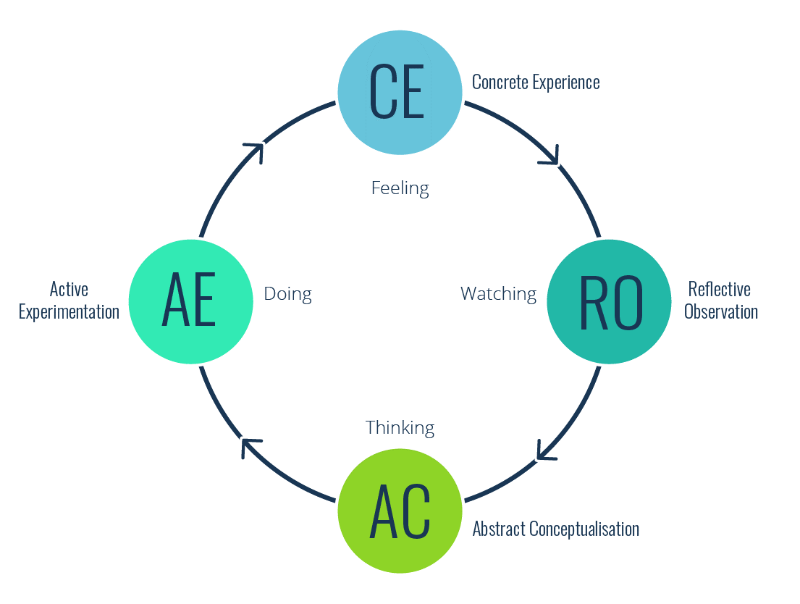Faculty/Staff
Overview
Experiential learning is an opportunity for students to gain self-knowledge by further exploring and developing their skills, interests, and values outside of a traditional academic setting. There are several opportunities that fall under the experiential learning umbrella, including internships, research, community projects, service learning, study abroad, and co-curricular programs, to name a few.
Experiential learning promotes and advances academic curiosity, interdisciplinary learning, civic engagement, and career development [1]. These align with preparing students for world readiness as defined in the Boyer 2030 Commission's Equity Excellence Imperative [2], inclusive of life, work, and citizenship.
By participating in structured experiential learning, students can potentially engage the higher-level categories of Bloom's Taxonomy of learning, including applying, analyzing, evaluating, and creating.
As identified by the University of Colorado – Denver [1], learning that is experiential contains the following elements:
- Reflection, critical analysis, and synthesis
- Opportunities to take initiative, make decisions, and be accountable for the results
- Opportunities to engage intellectually, creatively, emotionally, socially, or physically
- Natural consequences, mistakes, and successes
Experiential Learning Theory
According to David Kolb, psychologist, professor, and theorist, "experiential learning is a learning process where knowledge results from the combination of grasping and transforming an experience [3]." He suggested "knowledge is created through the transformation of experience [3]."

Getting Started
Below are some initial considerations when integrating experiential learning into your in or out of classroom experience.
- The activity should align with the learning outcomes of your program or course, and that connection should be intentionally made for students.
- Students should have someone overseeing their engagement in experiential learning, whether a faculty/staff member, a mentor, or someone else involved in the experience.
- There needs to be a plan for helping students make meaning of the experience through reflection of the experience itself and their personal or professional goals. Reflection occurs during the process and as a capstone to the experience.
If you are interested in incorporating different types of experiential learning opportunities in or out of the classroom, check out some collaboration partners on this page, explore the data dashboard, or email exl@wcupa.edu.
